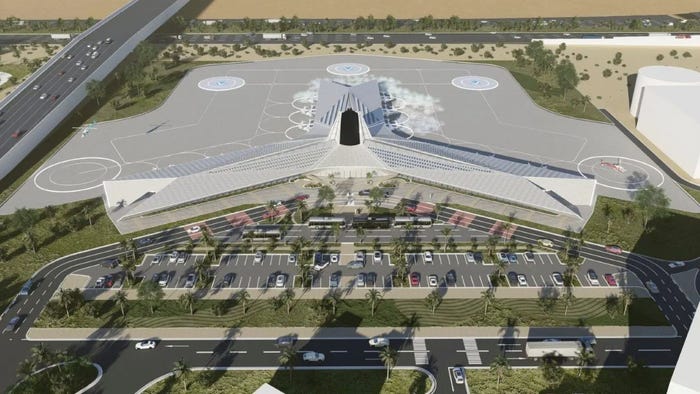Starship Raises $90M for Autonomous Delivery RobotsStarship Raises $90M for Autonomous Delivery Robots
The company said it’s now ready to “take on the world” and extend its autonomous delivery network worldwide

Starship Technologies, a developer of autonomous delivery robots, has raised $90 million in a new funding round to expand its delivery network to a global scale.
The round has brought Starship’s total funding to $230 million since its creation.
Launched in 2014, Starship’s delivery robots have since been rolled out in 80 countries, including the U.S., the U.K., Germany, Denmark, Estonia and Finland, primarily serving students and staff at university campuses.
Customers include Bolt, Co-Op, Aramark, Sodexo, Chartwells and Grubhub, while universities deploying Starship’s robot service include Notre Dame, UNC and Sam Houston State University, to name a few.
Starship’s fleet of delivery robots has zero-emissions and, according to the company, has reduced carbon dioxide emissions by almost 4 million pounds since its first commercial deployment in 2014.
A company statement highlighted that “last-mile and on-demand delivery, the most costly and carbon-intensive aspect of the supply chain, has been a stumbling block for logistics businesses across the world, yet demand is growing for rapid deliveries of food and other goods,” a company statement said.
Starship’s robots meet this challenge, automating last-mile delivery to improve businesses’ sustainability, cost-efficiency and labor shortage challenges.
“Autonomous delivery isn’t some science fiction concept from Bladerunner for decades in the future, it’s a reality for hundreds of thousands of people every day,” said Ahti Heinla, Starship’s CEO. “Building a company like Starship takes at least a decade of perfecting the technology, streamlining operations and reducing costs to make last-mile autonomous delivery viable and sustainable at scale,
“Now we’re ready to take on the world and with ambitions to build a category-dominating company that can change the daily lives of millions of people in thousands of locations worldwide.”
Last August, Starship introduced a series of new features to its small wheeled robots, including wireless charging and robot “characters,” allowing students to request specific voices and personas for the robot handling their delivery.
Starship also recently expanded its wireless charging capabilities to its robots at George Mason University in Fairfax, Virginia. Delivery robots there now recharge autonomously between deliveries.
Starship said it plans to roll out its wireless charging solution globally in the months to come, pursuing its goal of creating a fully autonomous system that can be deployed at scale.
About the Author
You May Also Like






